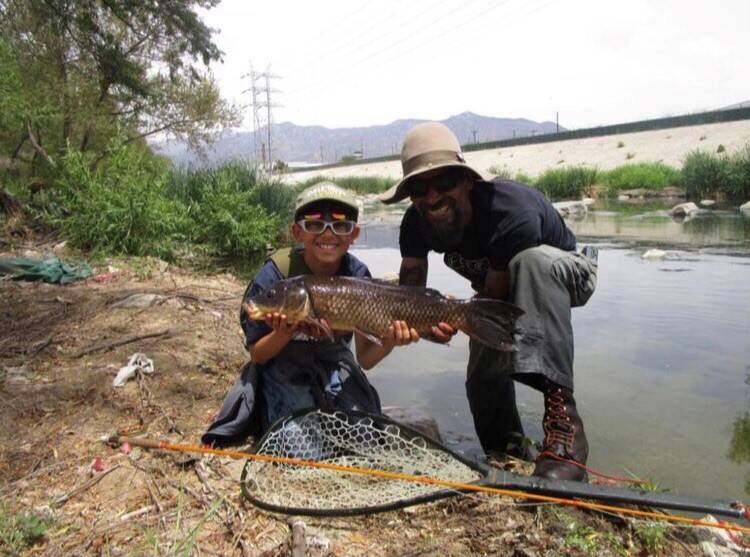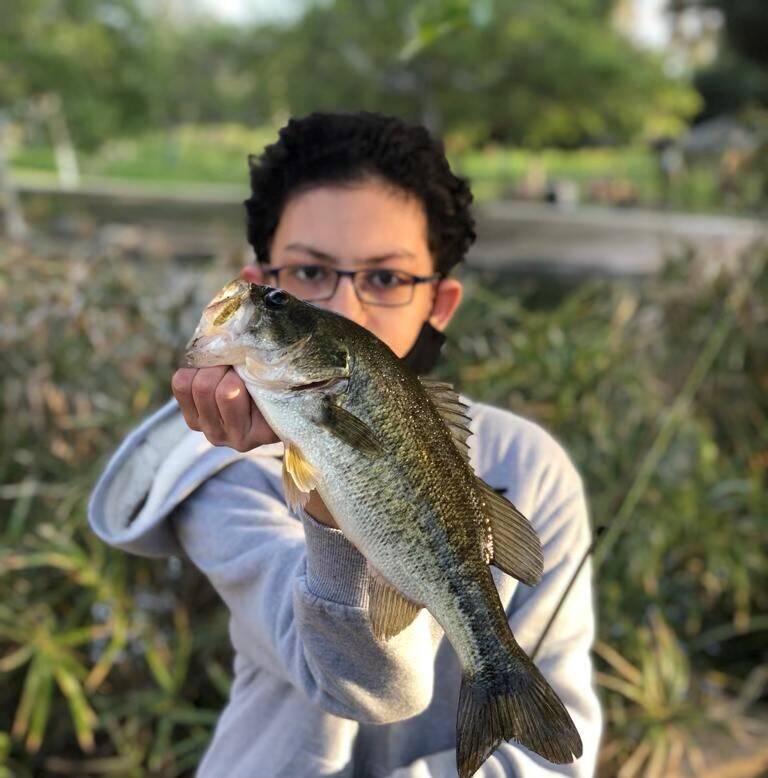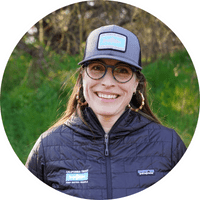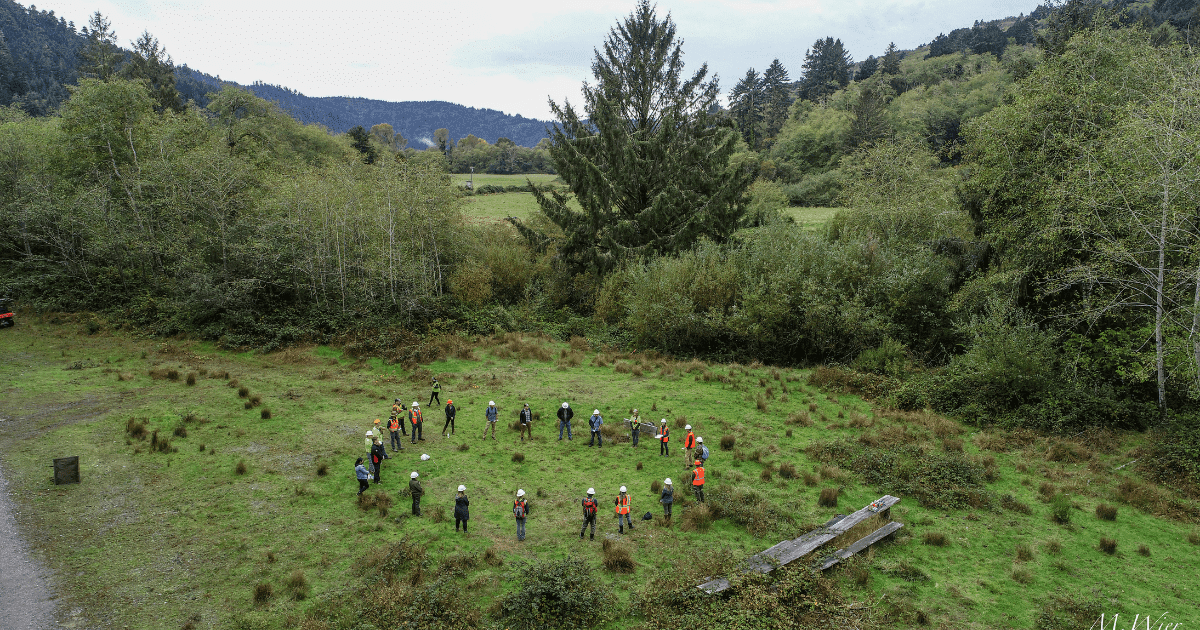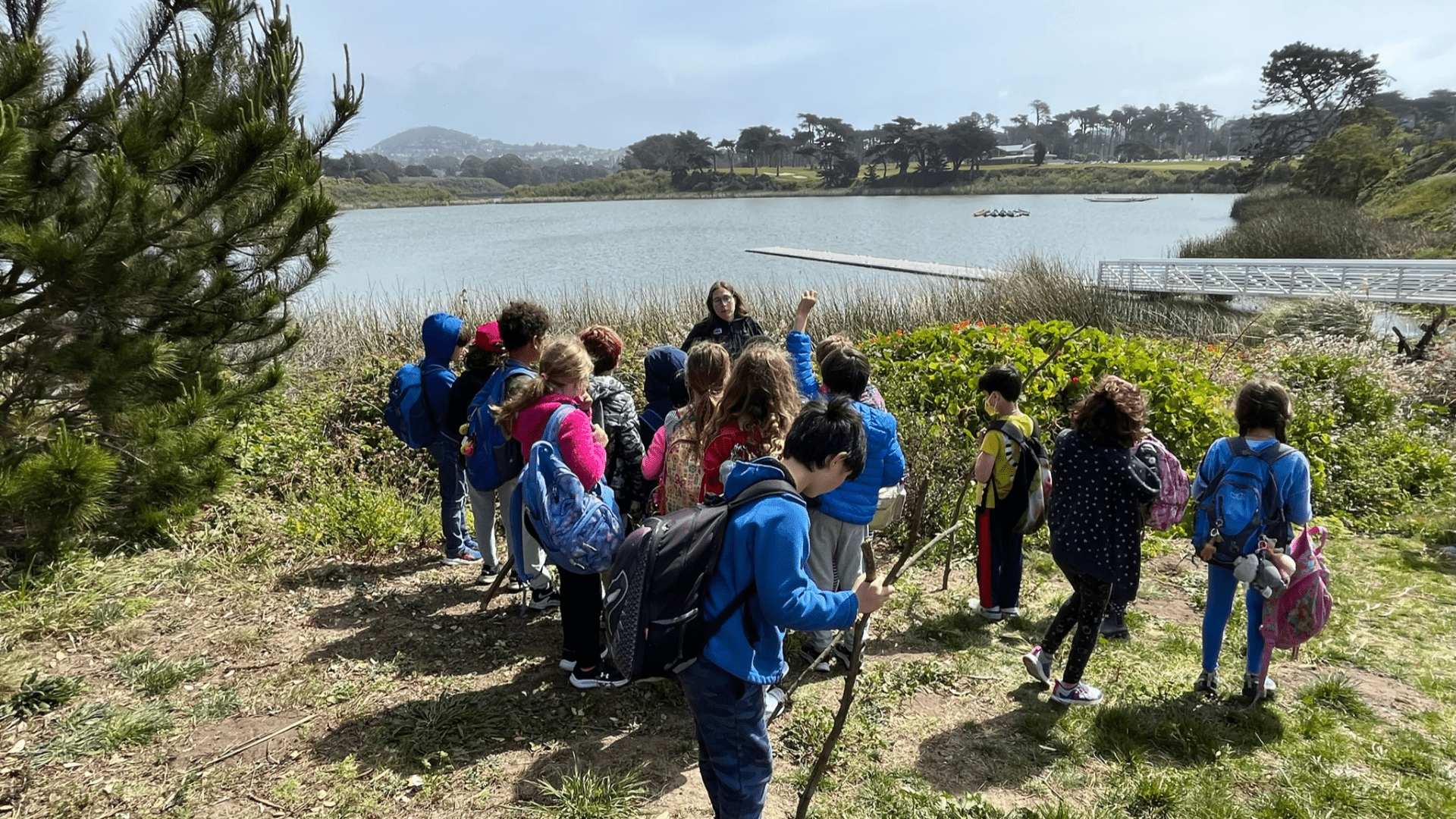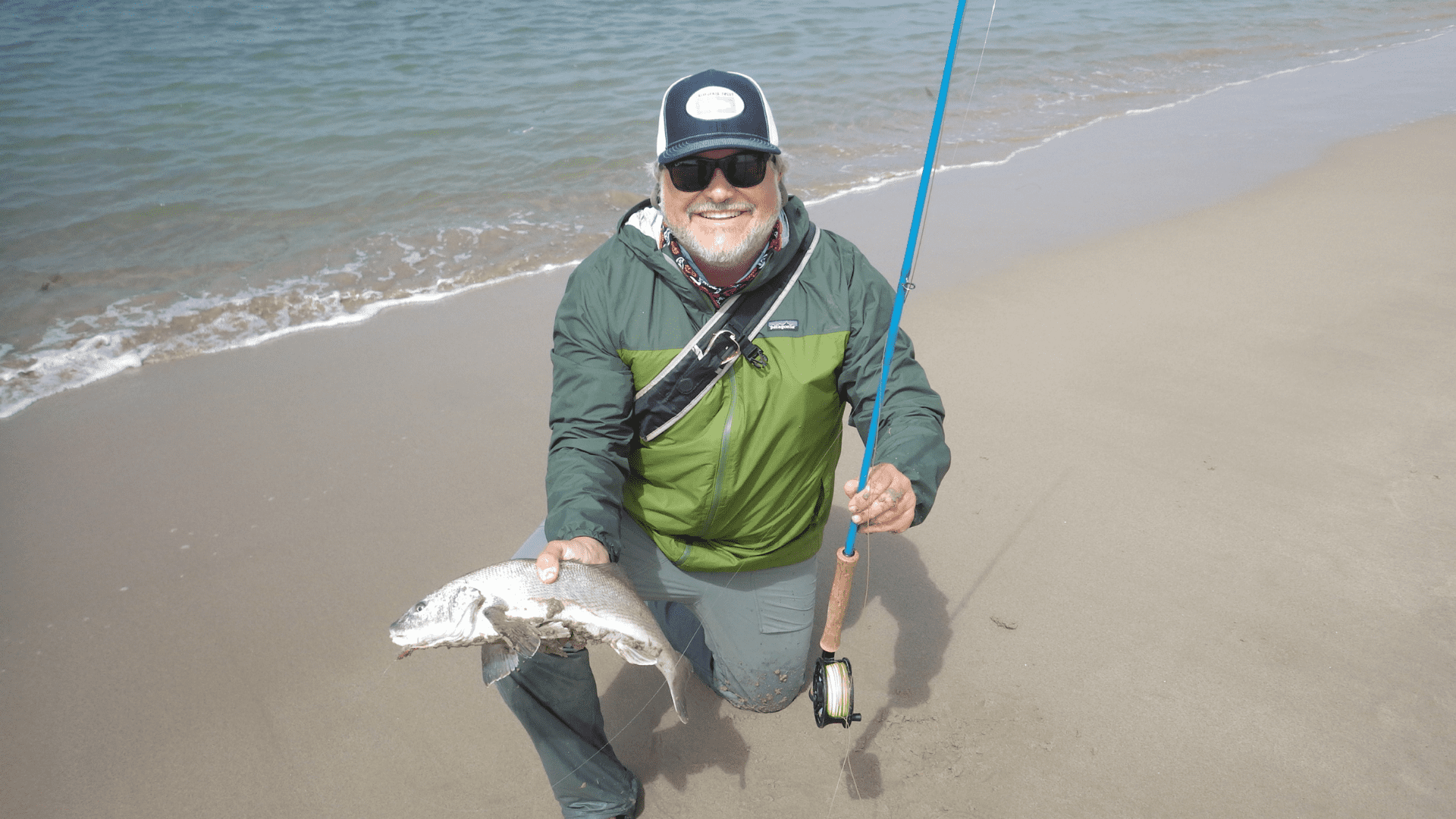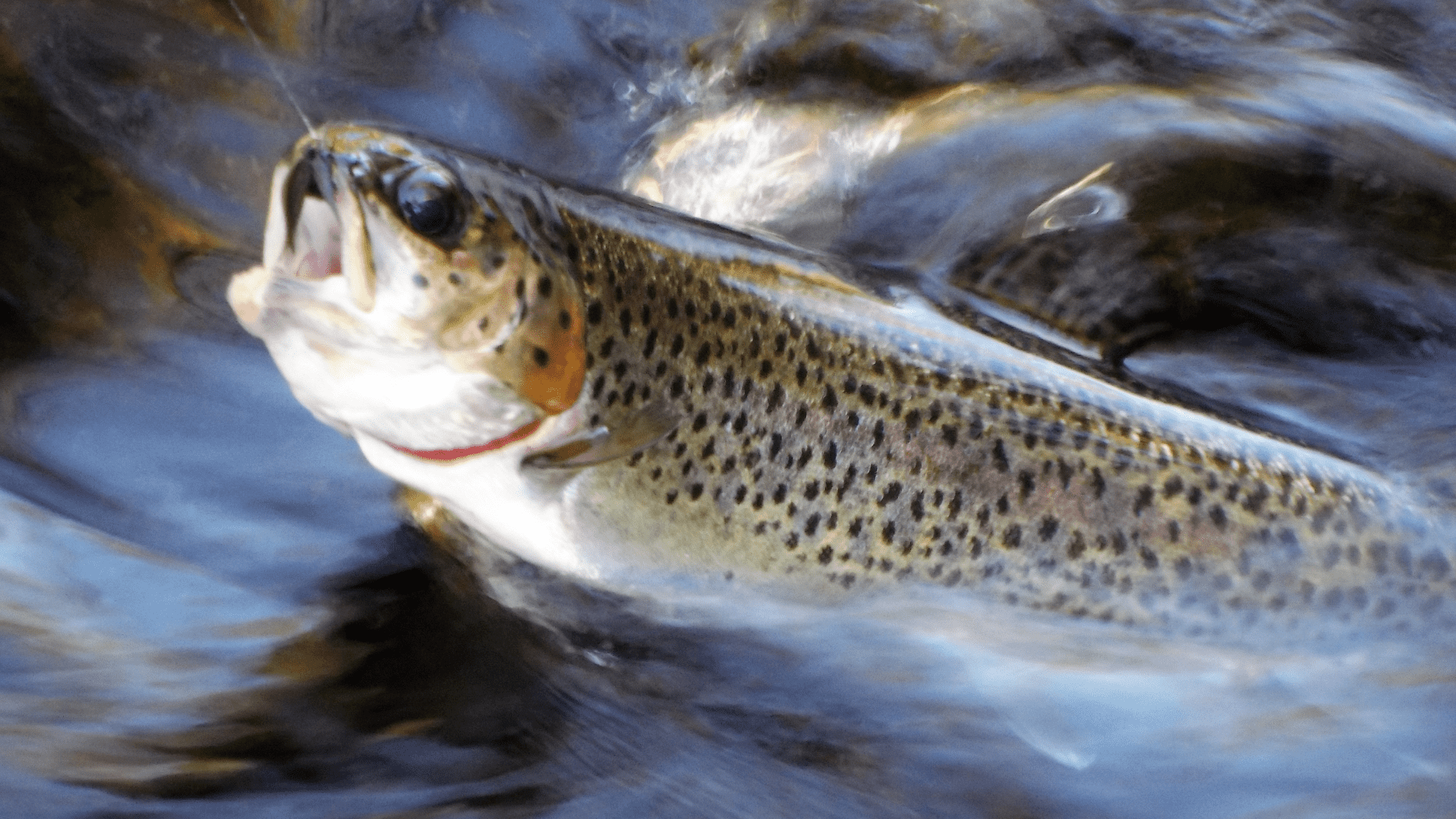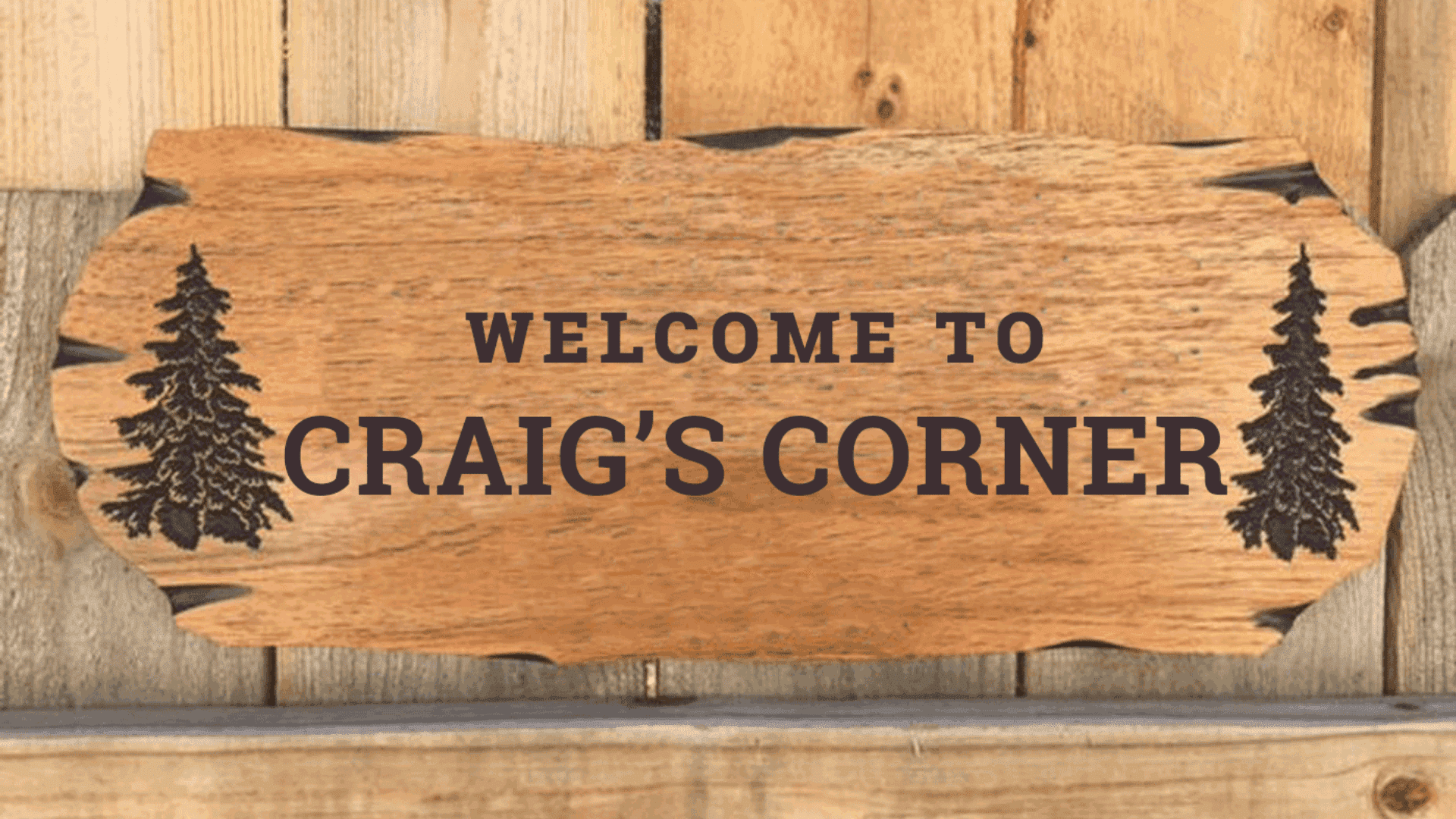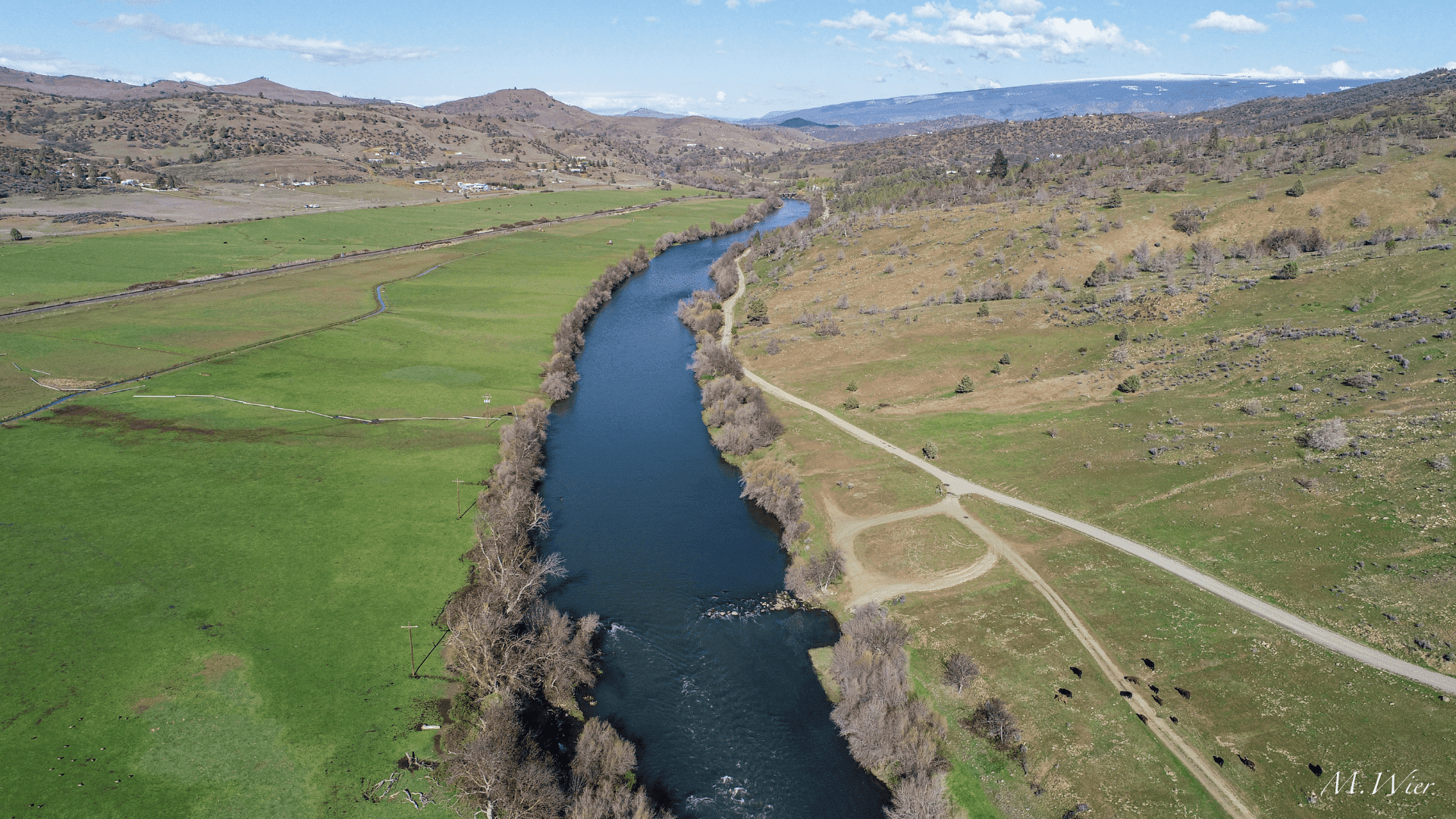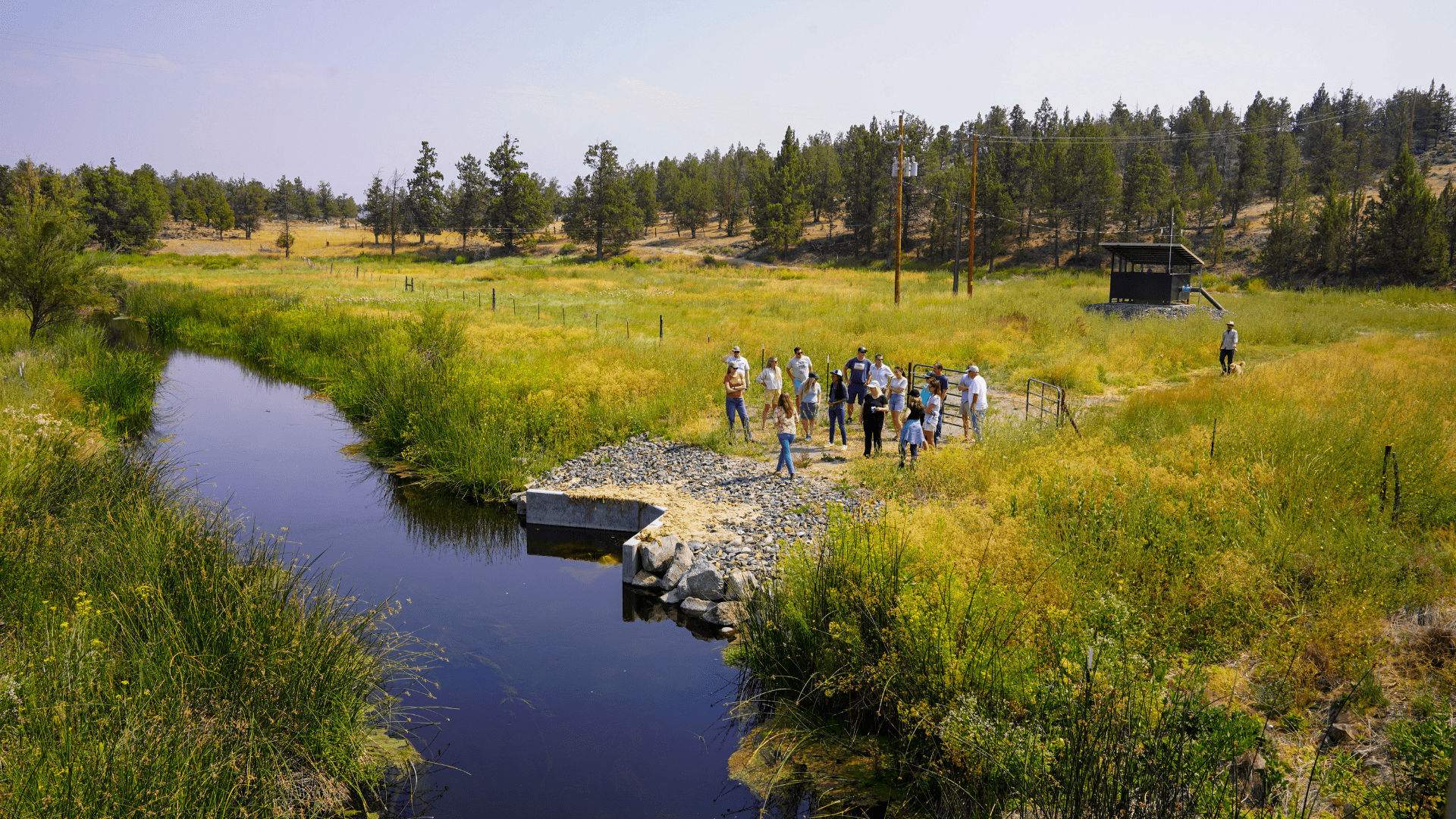It’s a rainy evening in Pasadena, California and I’m in a theater lobby. CalTrout is hosting a screening of the International Fly Fishing Film Festival and folks from all over Los Angeles are filtering in to see the show. There are both long-time supporters of CalTrout and folks new to us in attendance.
Haissam Badawi is one of those new to us (“pronounced Hi-sum, like slice ‘em," Haissam says to me). After a brief introduction, we start chatting about Haissam’s son Ali, the fisherman of the family, who is at the show with him.
Haissam tells me about Ali’s ongoing interest in fishing, and his discipline in pursuit of this interest. He tells me that Ali won first place in the Los Angeles County Science Fair’s physics (hydrodynamics) division with a project on discovering which fly structure sticks to water’s surface tension the most.
A few moments later Ali (pronounced as it rhymes with Molly) came over and introduced himself to me. We covered a lot in our brief interaction, discussing both about CalTrout’s work and how Ali wants to get involved. We talked about where he fished, which was mostly local water anywhere near his home in Los Angeles. I was struck by Ali’s curiosity and insatiable appetite for all things fish and fishing.
I knew after that conversation that I would stay connected with Ali, and also knew that he held a unique perspective that CalTrout’s wider community would benefit from hearing about.
Cover Photo: Sam Gao
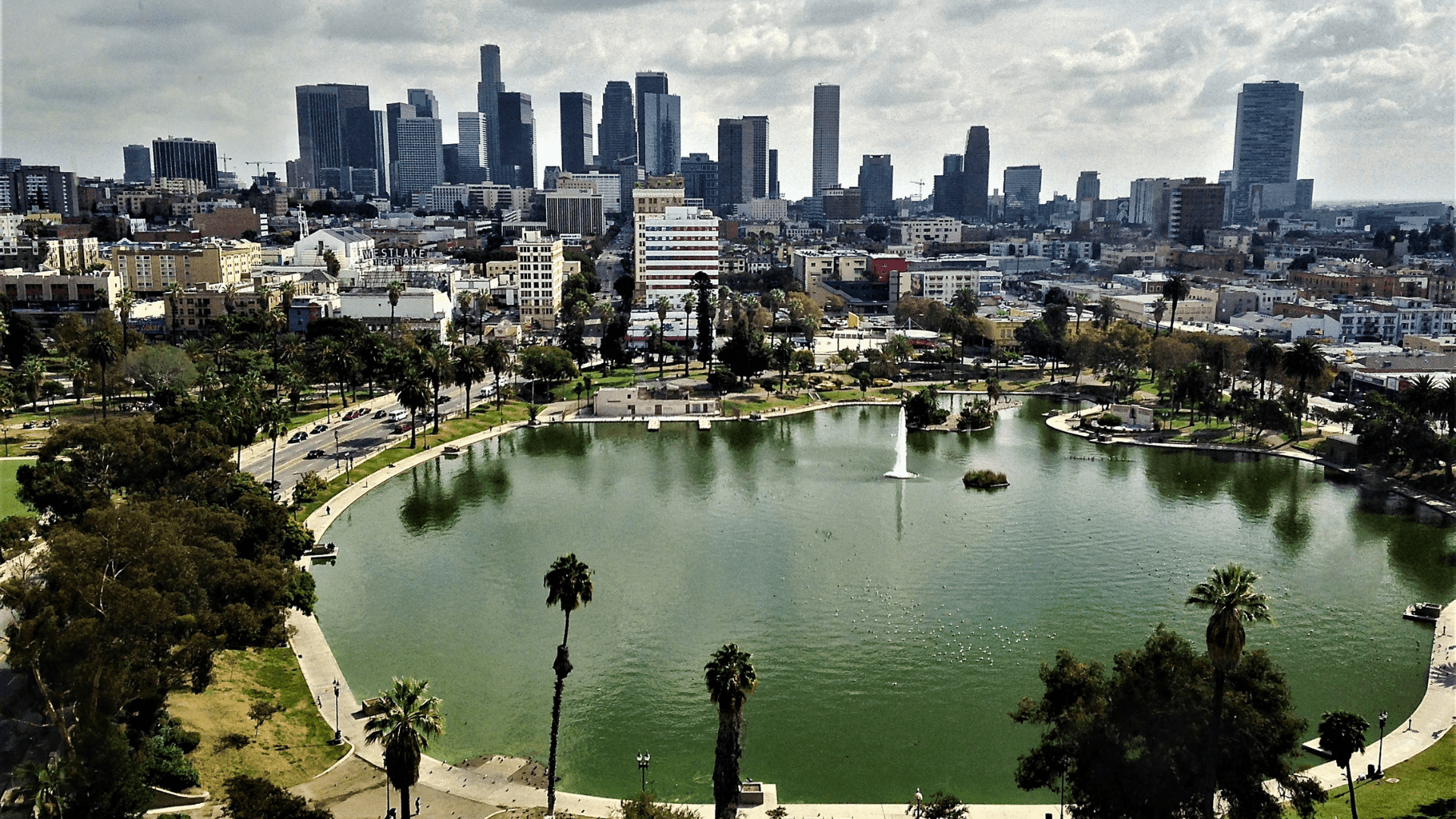
A Lifelong Interest
On a sunny afternoon in Palo Alto I give Ali a call, and with him in my headphones calling from his home in LA, we settled into some excellent conversation about his relationship with fishing, conservation, and community.
Ali is 15 years old, and when I ask him to tell me about the first time he knew he was interested in fishing, he recounts a toy set his mom bought for him in Egypt (where Ali’s family is from) when he was very young; it was a circular contraption that wound up and had little fishing rods that would dip.
He was fascinated with it and remembers being interested in fishing from that point on. The first time he ever went fishing was with a huge bamboo pole with line and a hook tied on, fishing for native tilapia in a pond on his uncle’s property in Egypt. Fast forward to now, and Ali is a renaissance man when it comes to fishing – he fishes all styles, voraciously.
As he recounts this memory, I think about how for so many of us, our relationship with fishing is connected to family and community. Throughout our conversation, Ali mentioned many times how his family supports his interest in fishing although they don’t fish (but after years of taking Ali to different spots, Haissam has indeed picked up a thing or two).
Trial and Error
It took Ali years of trial and error and self-teaching to catch his first fish. His sense of exploration and curiosity kept him moving forward – “what will happen if I do this, what will happen if I try that?” He stayed consistent and creative, and Haissam shared with me the many times Ali could be seen practicing casting from the balcony of their apartment. Ali leaned on local fishermen to teach him what they could, but some things can’t be taught, and Ali gleefully tells me, “we like to say I’ve paid my dues.”
When I ask what he loves about fishing, Ali talks about that feeling of prepping gear the night before and leaving in the morning so early that the darkness still envelops you. He talks about the “spark of hope in your heart” that your trip will go well, and the indescribable feeling of hooking up on a fish. As he talks my own heart swells thinking of cool water in the morning and shining scales.
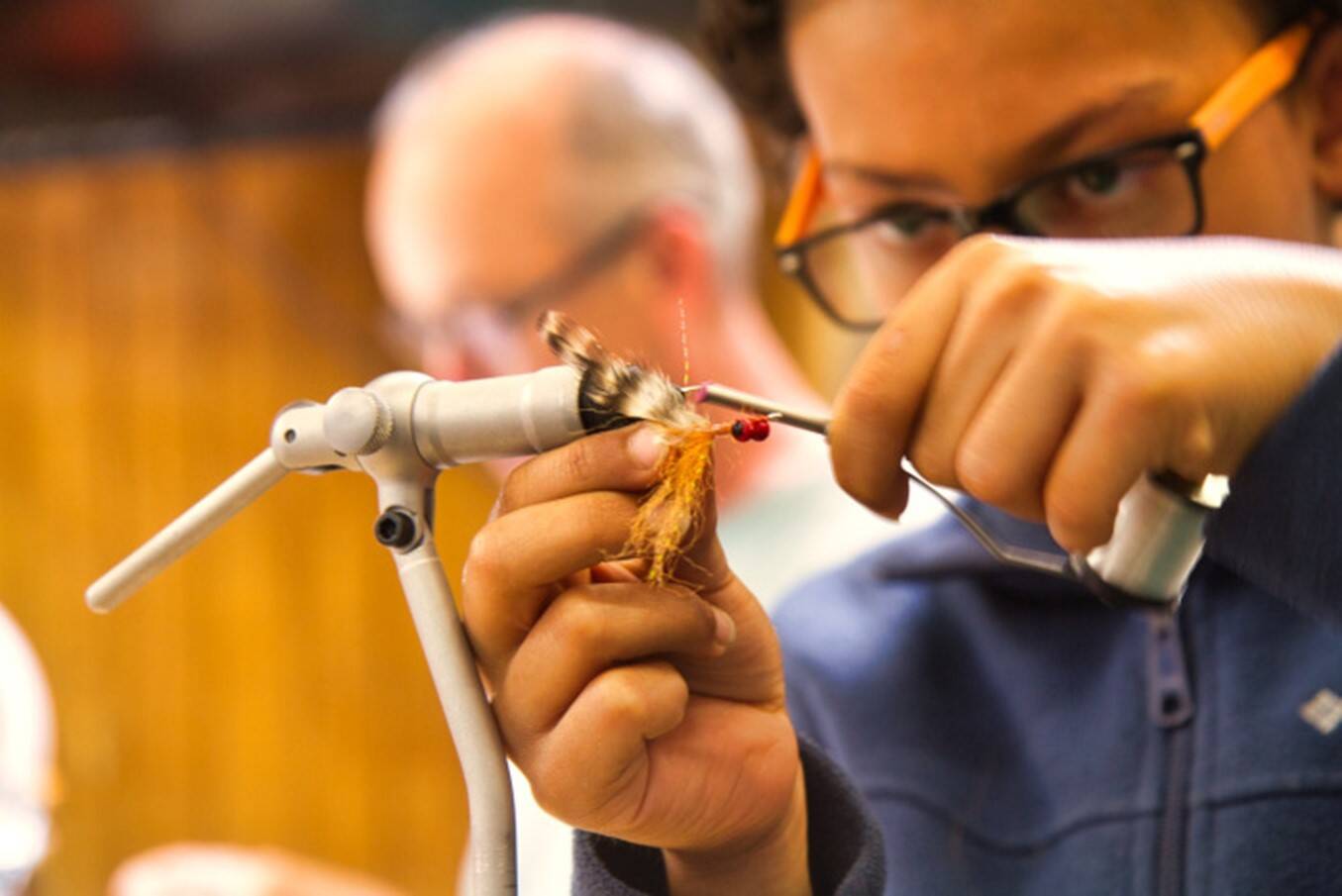
Caring for Place
Many of Ali’s local fishing spots are incredibly urban places, such as Kenneth Hahn State Recreation Area and MacArthur Park, both in the middle of Los Angeles. When I ask Ali what he thinks about fishing in urban places he responds pragmatically, saying that it’s great to be able to fish near where you live, and the reality is that we live in urban places, so we fish urban. I share Ali’s sense of realism about fishing in the city and feel grateful for the many pockets of natural spaces still available to us in dense urban places. How can we take care of the places that need us most if we exclude them from our sense of what nature is, or from what we think a good fishing spot is?
This point easily brought us into a discussion about fishing and conservation being intimately connected, with Ali remarking that if you care about a piece of water and it’s dear to you, you are more apt to notice changes in the water, wildlife, and surrounding ecology. Because it is dear to you, you want it to continue to thrive, or to see it thrive again, and that care drives our choice to act in favor of conservation and restoration. Ali explains how relationship to place forces us to confront problems we see in front of us. For example, Ali was noticing dead fish turning up routinely at one of his regular fishing spots, so he reached out to CDFW for information on what could be happening, widening the web of involvement in that place. To me, this is what a network of care in action looks like.
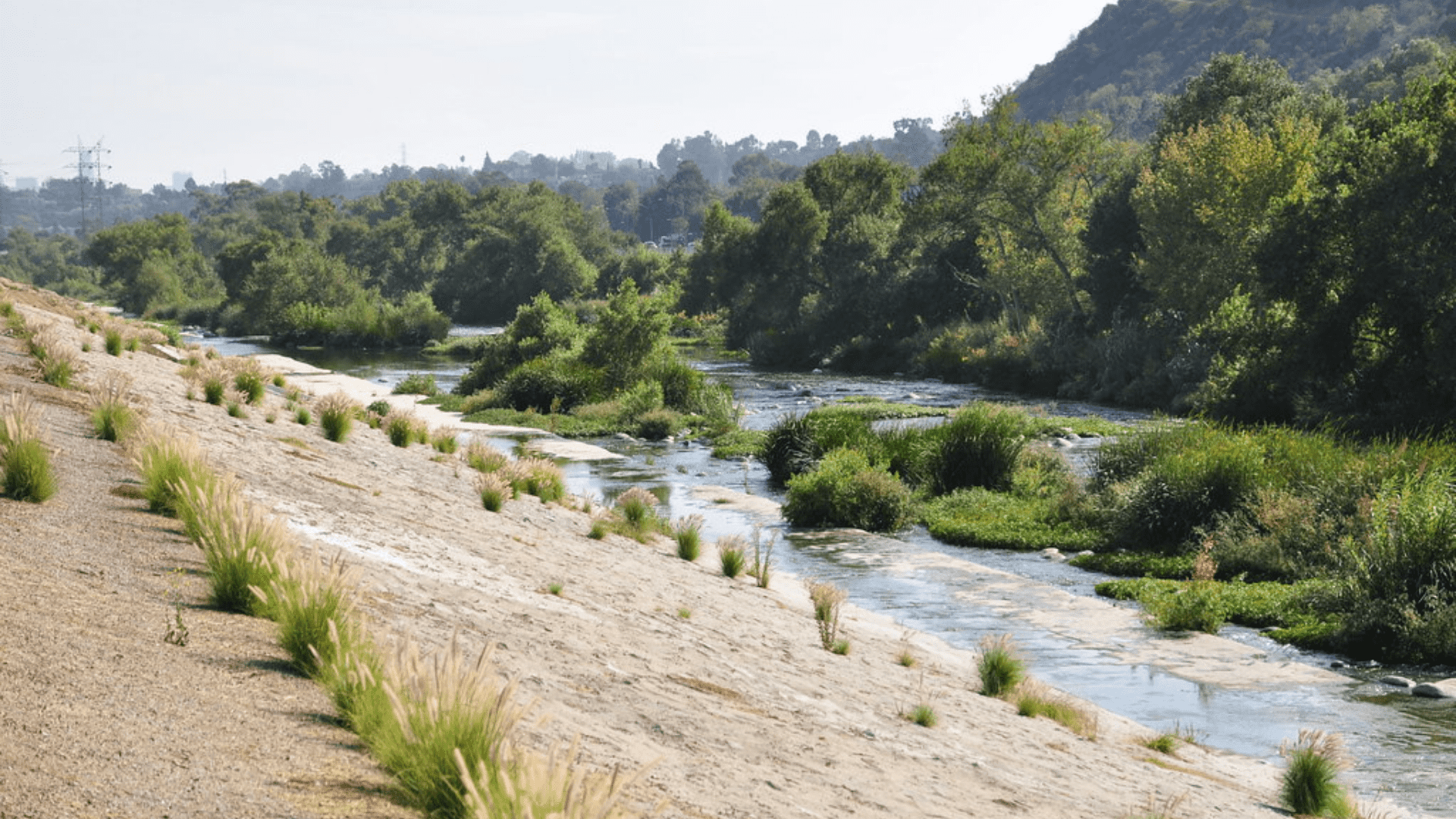
Building Community
Building a relationship with a place is often a pursuit in community building that includes not only fish, water, and plants, but also people. Ali explains how fishing routinely at his local spots allows him to build and deepen relationships with other people who use that space. He recounts connecting with fellow fishers and introducing interested local youth to what fishing is. Ali and I both note how this is another example of how fishing in urban places is unique – you’re surrounded by people, buildings, and cars. Along with that comes a plethora of different social, cultural, and environmental experiences.
Young People in Fishing
When I ask Ali what he thinks needs to happen for more young people to get involved in fishing and conservation, he pauses. It’s a challenging question, but Ali offers a thoughtful response. He thinks that more young people need to know that fishing is not about just sitting and waiting. It’s about connecting, understanding conditions, about getting to know your environment. He thinks that just seeing other young people in the fishing community as a young person is influential and that making peer connections would grow interest.
Ali is sure that he’ll never stop fishing and caring for the places that allow him to fish. He knows that we’re going to “face a lot of new challenges” in the coming years and that many wild and natural places are threatened by development. He hopes to be part of a force that slows those threats and believes that we need conservation more than ever.
Ali and I hang up the phone, and the images of Ali’s life that he’s painted for me dance behind my eyes. I’m inspired by the creativity, levity, and actionable energy that Ali brings, and feel grateful for every conversation that makes social and environmental change feel more human scale. I know that Ali’s drive is unique and that he is blessed to have family that supports his interests. I also know that the more opportunities we create for youth and families to see a bait ball sparkle in the water, or a blue heron fish in the shallows, the more opportunities we have to create resilient networks of care for natural places, even in the most urban places in this state.
Thank you to Ali Bawadi and his father, Haissam, for the conversations that led to this article.
